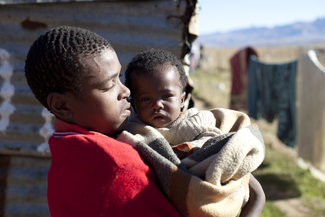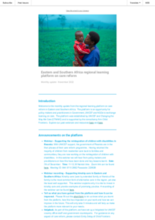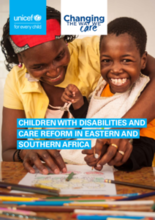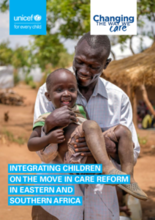

Displaying 91 - 100 of 576
We are looking for a Programme Funding Officer to join us and make orphanages history.
The Child Support Grant (CSG) should be increased so that children have enough to eat, according to a recent research report commissioned by Black Sash. The report on children, social assistance and food security found that at current levels the grant is not enough.
This is the monthly update of the Eastern and Southern Africa Regional Learning Platform published in November 2022.
A new report from South Africa found over 20 per cent of hospitalisations were of children aged 18 and under.
A new report from South Africa found over 20 per cent of hospitalisations were of children aged 18 and under.
Following the spate of abductions reported in different parts of South Africa, human rights NGO Amnesty International has called on the authorities in Pretoria to be transparent about the cases of kidnappings, and to bring the perpetrators to justice.
This paper highlights the importance of placing support for children with disabilities and their families at the centre of care reform efforts, and provides examples from across the region of how this can be done.
This short paper examines why children on the move need to be included in care reform in the region, how the care needs of these boys and girls can be met, and what lessons can be learned from the care of children on the move to inform the care of children more broadly.
These presentations from Know-How Center Bulgaria, Children and Family Initiative, and Changing the Way We Care, were delivered during the September 30, 2021, workshop of the Care Measurement Task Force of the Transforming Children's Care Global Collaborative Platform. The focus of the workshop was translating research evidence into action.
These presentations from Hope and Homes for Children, Miracle Foundation and Railway Children were delivered during the August 20, 2021, workshop of the Care Measurement Task Force of the Transforming Children's Care Global Collaborative Platform. The focus of the workshop was child and family outcome measurement.



